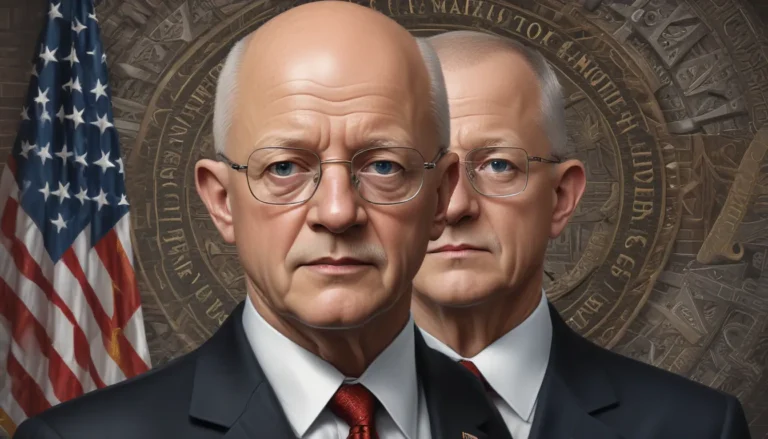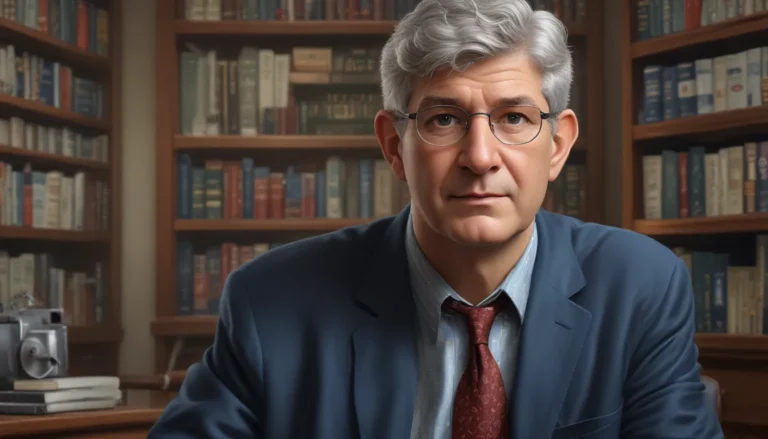The images in our articles may not match the content exactly. They are used to grab your attention, not to show the exact details in the text. The images complement the text but do not replace it.
Are you a fan of The Great Gatsby and curious to learn more about the man behind this literary masterpiece? F. Scott Fitzgerald, an iconic figure of the Jazz Age, led a colorful and complex life that has captivated readers and historians alike. In this article, we will delve into 17 astonishing facts about F. Scott Fitzgerald, shedding light on his early struggles, literary successes, personal challenges, and enduring legacy. Whether you’re a die-hard fan or just intrigued by this literary giant, join us as we uncover the layers of Fitzgerald’s life one fact at a time.
The Early Life of F. Scott Fitzgerald
F. Scott Fitzgerald, born on September 24, 1896, in Saint Paul, Minnesota, was destined for greatness from the start. His early years were marked by both promise and hardship, setting the stage for a literary career that would leave a lasting impact on American culture.
-
A Name with History: Fitzgerald was named after his famous second cousin, Francis Scott Key, the author of the United States’ national anthem. This connection to American history hinted at Fitzgerald’s future influence on the cultural landscape of the country.
-
Financial Struggles: Despite his later associations with the glamour of the Jazz Age, Fitzgerald’s family faced financial difficulties. When Fitzgerald was just 12 years old, his father lost his job, impacting the family’s social standing and financial stability.
Education and Early Career of F. Scott Fitzgerald
Fitzgerald’s path to literary greatness was paved by his experiences at prestigious schools and universities, which exposed him to the wealth and class disparities that would later feature prominently in his work.
-
Newman School: Fitzgerald attended the Newman School, a prestigious Catholic prep school in New Jersey, where he first honed his writing skills. It was here that he published his first piece of fiction in the school’s magazine.
-
Princeton University and World War I: While at Princeton University, Fitzgerald’s studies were interrupted by World War I, leading him to drop out and join the army. This decision had a profound impact on his life and his future as a writer.
-
Zelda Sayre: While stationed in Alabama during the war, Fitzgerald met Zelda Sayre, who would become his wife and a significant influence on his writing. Their tumultuous relationship fueled much of his literary output.
The Great Gatsby and Fitzgerald’s Literary Success
One of Fitzgerald’s most famous works, “The Great Gatsby,” remains a timeless masterpiece that captures the essence of the Jazz Age and the complexities of the American Dream.
-
The Great Gatsby: Published in 1925, “The Great Gatsby” initially received mixed reviews and was not an instant commercial success. However, over time, it has come to be regarded as a masterpiece of American literature.
-
Living the Jazz Age: Fitzgerald’s portrayal of the Jazz Age was more than just observational; he and Zelda lived the extravagant lifestyle he depicted in his novels, making them celebrities of their time.
Personal Struggles and Later Years
Despite his literary success, Fitzgerald faced personal challenges, including financial difficulties and Zelda’s mental health issues, which took a toll on both of them.
-
Zelda’s Schizophrenia and Fitzgerald’s Alcoholism: Zelda was diagnosed with schizophrenia in 1930, while Fitzgerald struggled with alcoholism, exacerbating their personal and financial difficulties.
-
Hollywood and Professional Frustrations: In an effort to revive his career and finances, Fitzgerald moved to Hollywood in the late 1930s to work as a screenwriter. However, this period was marked by professional frustrations and continued financial instability.
-
Tragic End: Fitzgerald tragically died of a heart attack on December 21, 1940, at the age of 44, feeling like a failure and believing his work had been forgotten. His passing marked a somber end to a life that had once held so much promise.
Fitzgerald’s Enduring Legacy
Fitzgerald’s work has experienced a resurgence in popularity in the years following his death, cementing his status as a key figure in American literature.
-
Posthumous Recognition: During World War II, Fitzgerald’s novels, including “The Great Gatsby,” were distributed to American soldiers, leading to a resurgence in his popularity.
-
Literary Appreciation: Today, Fitzgerald is celebrated for his acute observations of American society, his lyrical prose, and his insightful critiques of the American Dream.
-
Study and Admiration: His novels and short stories continue to be studied and admired for their complex characters, intricate plots, and the beauty of his writing.
-
Inspiring Love Story: The tumultuous relationship between Fitzgerald and Zelda has inspired numerous works of fiction, biographies, and films, reflecting the enduring fascination with their lives.
-
Honors and Recognition: Fitzgerald has been inducted into the American Writers Museum, ensuring that his legacy will continue to inspire future generations.
-
Literary Festival: The annual F. Scott Fitzgerald Literary Festival in Rockville, Maryland, celebrates his work and encourages aspiring writers through workshops and awards.
-
Collectors’ Delight: Fitzgerald’s manuscripts, personal letters, and first editions are highly sought after by collectors and scholars, underscoring his lasting impact on American literature and culture.
Exploring Fitzgerald’s Timeless Legacy
F. Scott Fitzgerald’s life and works continue to captivate readers and scholars, offering a glimpse into the opulence and despair of the Jazz Age. Through his masterful storytelling, themes of love, ambition, and societal critique, he challenges us to reflect on our own ambitions and place within society. As we navigate his stories, we uncover timeless truths about the pursuit of happiness, the complexities of human relationships, and the enduring power of literature to shape our understanding of the world.
In Conclusion
F. Scott Fitzgerald’s legacy stands as a testament to the enduring impact of his work on American literature and culture. Through his captivating narratives and tragic personal life, he invites us to explore the depths of human experience, ambition, and love. As we immerse ourselves in his stories, we not only delve into history but also confront universal truths that resonate across generations. Fitzgerald’s work remains a beacon of inspiration, urging us to dream, to strive, and to reflect on the evolving tapestry of society.
Thank you for exploring the colorful life of F. Scott Fitzgerald with us. Keep the literary spirit alive by delving into his works and uncovering the timeless truths they hold. If you have any more questions or insights to share, feel free to reach out. Let’s continue this literary journey together!






